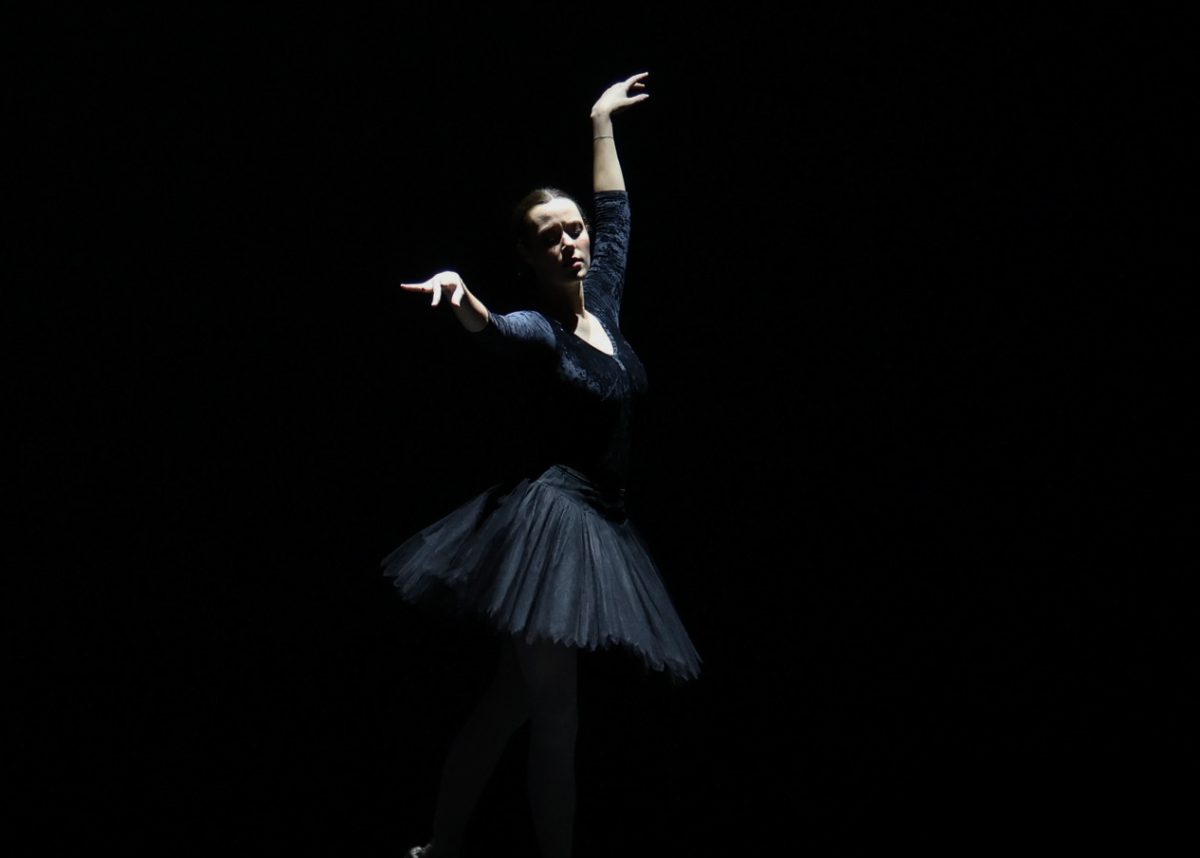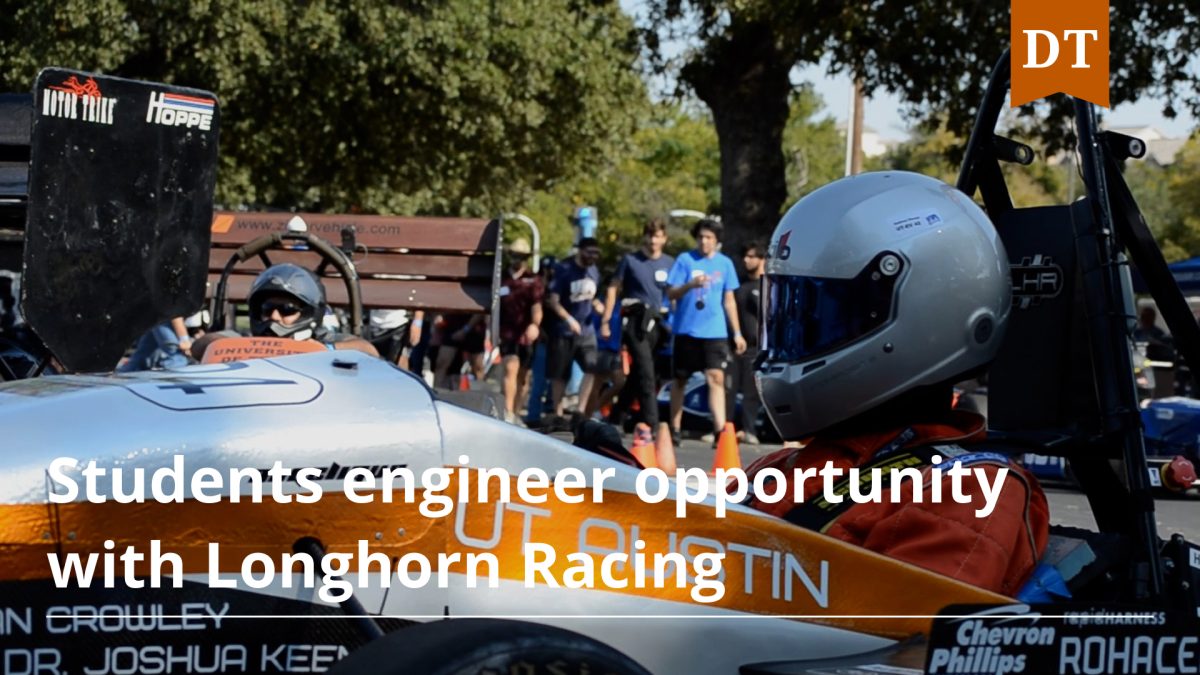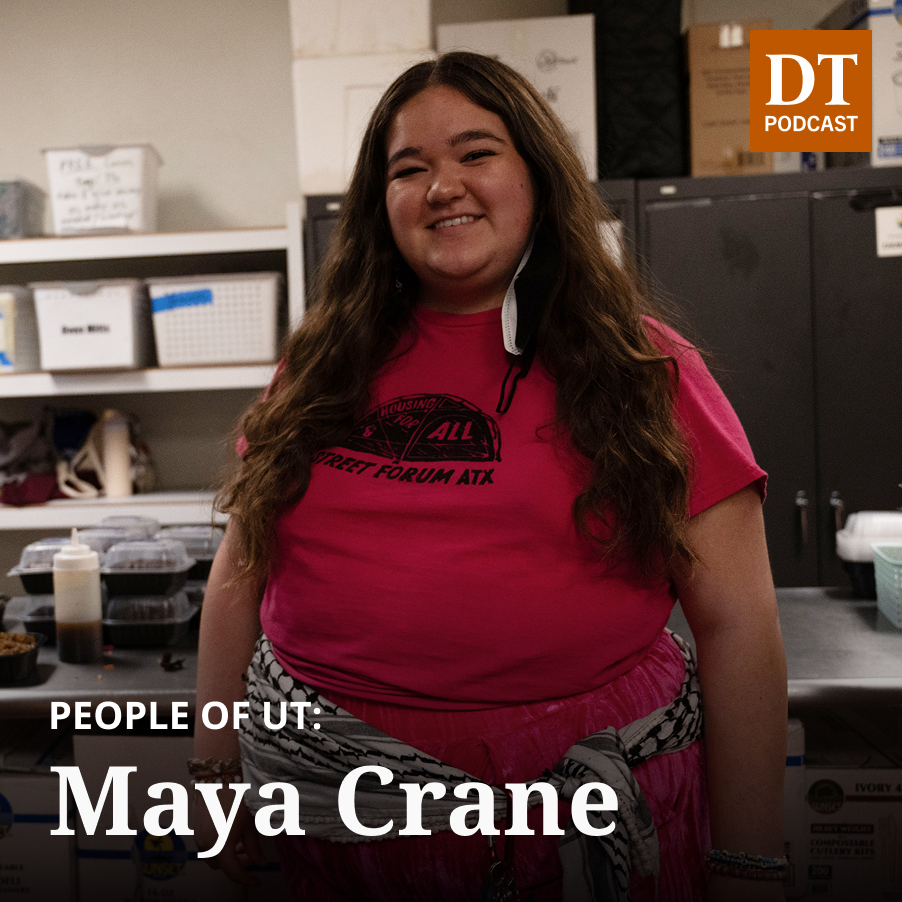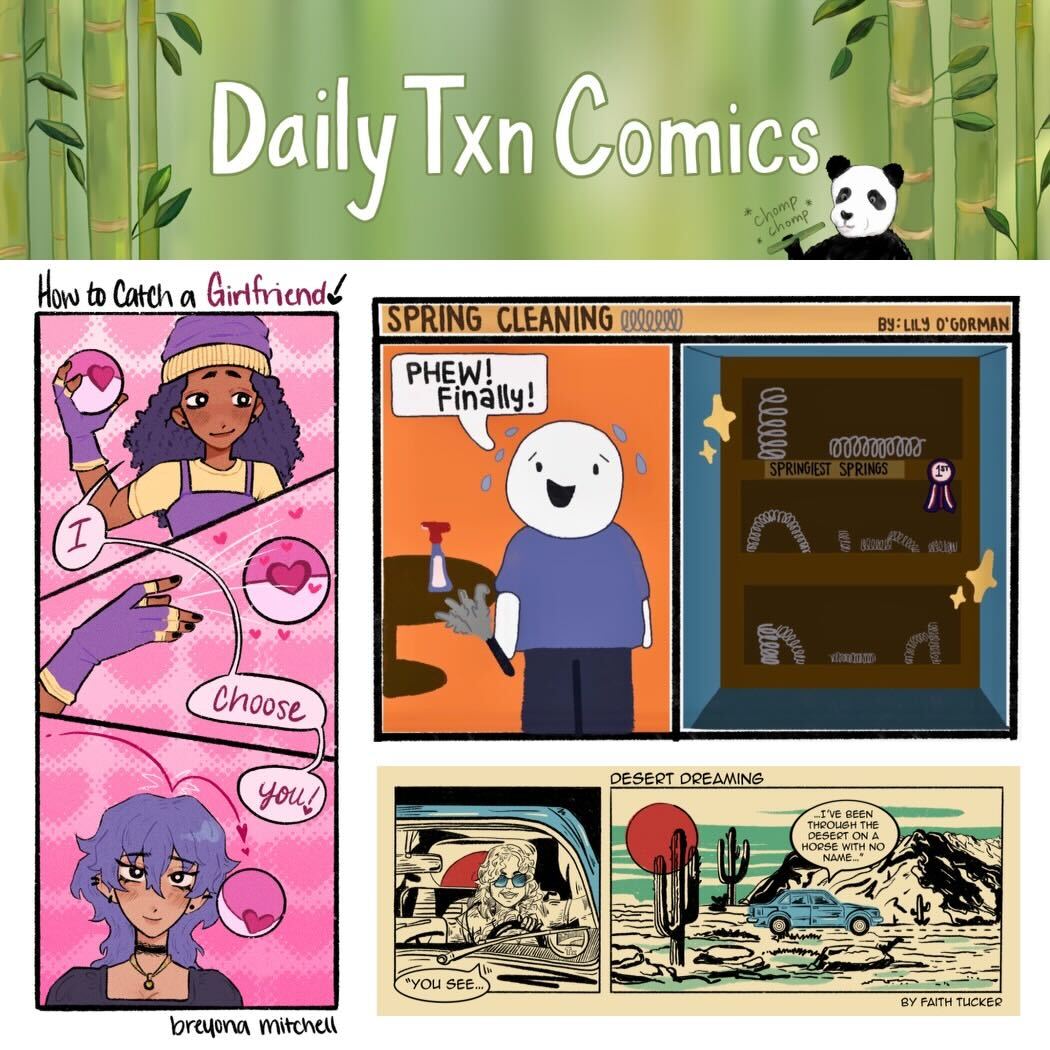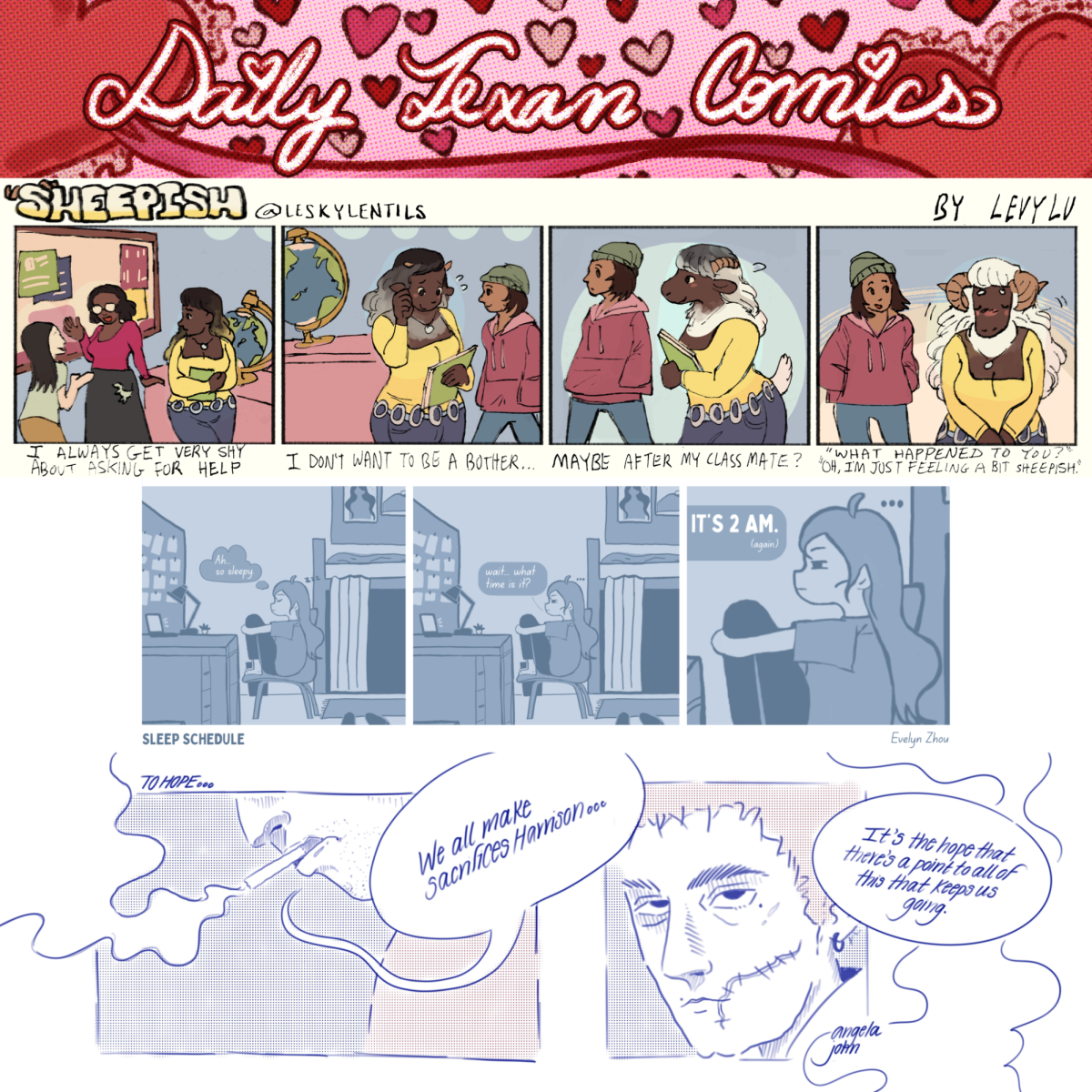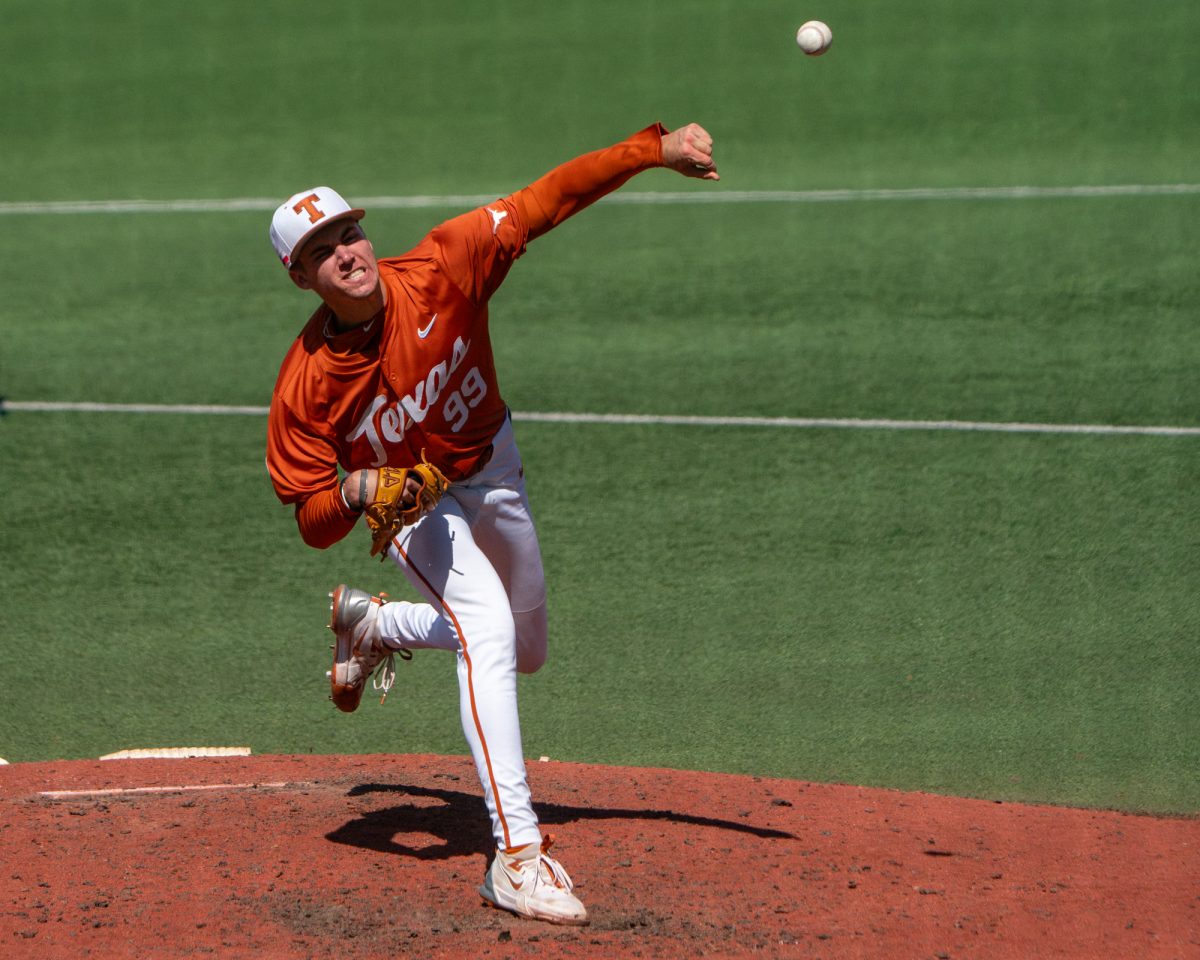At least 40 people, including students, faculty and community members, gathered at the intersection of Speedway and 21st Street on Wednesday to protest against the 25th Annual Israel Block Party, which celebrated Israeli and Jewish culture, in front of Gregory Gym.
The event is the largest Israel event on a North American campus this year, according to celebration organizer Texas Hillel. The event highlighted Jewish history, provided food and featured a display from the Anu Museum of Jewish People that honored victims from the Oct. 7, 2023, Hamas attack in Israel.
“Israel Block Party is an opportunity to introduce my fellow students to Israeli culture and history,” said junior Jared Levy, Israel Block Party co-chair, in a news release. “I am looking forward to welcoming students from across campus to join our celebration and engage in thoughtful learning.”
The block party also featured a market, where Texas Hillel volunteers sold kosher candy along with other cultural foods like curry, hummus and Israeli salad.
“(My favorite thing here is) eating really good food (and) eating a lot of nostalgic snacks and stuff that I would eat as a kid when I would go visit my family,” acting junior Naama Ozeri said.
The Palestine Solidarity Committee organized a protest in opposition to the block party as a part of Palestine Resistance Week, which is a series of events held to raise awareness for collective action in support of Palestine.
Protesters held signs reading “nothing here to celebrate,” and speakers at the protest expressed discontent with the “display of Zionism” on campus.
“Events just like this one, that we see before our eyes exist solely as a form of Zionist propaganda meant to erase the crimes of the state of Israel while simultaneously attempting to erase the Palestinian identity,” a speaker at the protest said.
A UT student and protester affiliated with PSC, who asked to remain anonymous out of fear of retribution, said among their concerns was the cultural appropriation of traditional symbols associated with Palestinian culture, such as the poppy flower. They said that for many students and members of the community, the effects of the Israel-Hamas war are personal.
“Our messaging is that there is still a genocide going on two years later,” the protester said. “There are still people dying, and a lot of our campus … have family that have died. A lot of them have friends that have died, and seeing a display of Zionism on our campus this big, the largest display in the U.S. on the college campus, is, quite frankly, disgusting.”
Vignesh Vasan, a graduate student in technology and commercialization, said he believed the protest was peaceful but expressed concern over law enforcement mobilized to respond to monitor the situation.
“I think there is free speech on campus. … It’s about, can you deal with the consequences of what you’re saying, and then are you actually actively doing something about that voice?” Vasan said.
At least three UTPD officers were seen in front of the McCombs Business School, facing the block party. At least four additional officers lined Speedway and monitored the events of the protest. At least three members of the Event Readiness and Response team observed the protesters and informed them of University policies.
Karma Chávez, professor of Mexican American and Latina/o studies, said there is support from some members of UT faculty towards pro-Palestinian activism, but the conditions for free speech on campus have worsened since the University’s administrative response to protests in April 2024, when law enforcement arrested over 150 people, though the district attorney’s office later dropped some of their charges.
“We’ve realized that administrations are willing to cave to right-wing extremists who have a lot of money, from donors as well as elected officials, and that protecting students is not their priority, despite what they say,” Chávez said. “All of this is happening in the name of combating anti-semitism, but it’s a false premise because the pro-Palestine movement is not anti-semitic.”
While both groups remained peaceful, some attendees at the block party felt like it disturbed their cultural celebration. Texas Hillel said they weren’t aware of the counter-protest and declined to comment further.
“It’s double standards, for sure, because we’re not doing anything, we’re not announcing anything,” Ozeri said. “Just protesting people’s identity is not a good representation if you’re trying to make a point.”








